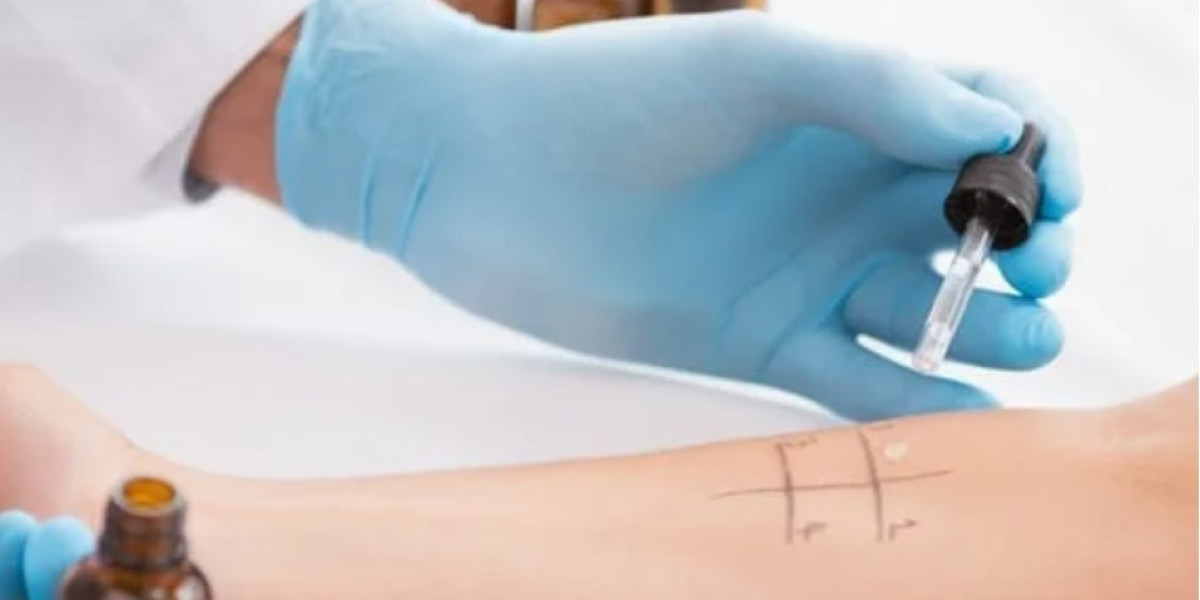Allergies can significantly impact your quality of life, causing a range of symptoms from mild irritation to severe reactions. If you suspect you have allergies but aren't sure what triggers them, an allergy profile test might be the solution. This comprehensive diagnostic tool helps identify allergens that affect your health, providing valuable insights into managing and treating allergies effectively. This blog explores what an allergy profile test is, why it's essential, and how it can benefit you.
What is an Allergy Profile Test?
An allergy profile test is a diagnostic examination designed to identify specific substances that trigger allergic reactions in individuals. This test measures your body's immune response to various allergens, including foods, environmental factors, and more. By analyzing the levels of specific antibodies or immune responses in your blood, healthcare providers can pinpoint potential allergens.
There are different types of allergy profile tests, including:
IgE Blood Test: Measures the level of Immunoglobulin E (IgE) antibodies in response to specific allergens.
Skin Prick Test: Involves placing small amounts of allergens on your skin to observe reactions.
Patch Test: Evaluates delayed allergic responses by applying allergens to your skin for an extended period.
Each test provides a unique perspective on your allergic sensitivities, helping tailor an effective management plan.
Why Should You Consider an Allergy Profile Test?
Accurate Diagnosis: The allergy profile test helps in accurately diagnosing allergies by identifying specific triggers. This precision allows for targeted treatment and avoidance strategies.
Improved Quality of Life: Understanding what causes your allergic reactions can significantly improve your quality of life. By avoiding or managing allergens, you can reduce symptoms and enhance overall well-being.
Personalized Treatment Plan: With precise knowledge of your allergens, your healthcare provider can develop a personalized treatment plan. This may include medication, allergy shots, or lifestyle changes to mitigate exposure to allergens.
Early Detection: Allergy profile tests can detect sensitivities before they become severe, allowing for early intervention and prevention of potential complications.
How is the Allergy Profile Test Performed?
The procedure for an allergy profile test varies depending on the type of test being conducted:
IgE Blood Test: A sample of your blood is drawn and sent to a laboratory. The lab analyzes the sample for specific IgE antibodies that indicate an allergic response.
Skin Prick Test: Small amounts of allergen extracts are applied to your skin using tiny pricks. The test is typically performed on your forearm or back, and any reactions are observed and measured.
Patch Test: Allergens are applied to adhesive patches that are then placed on your skin. You will need to return after a few days to have the patches removed and assessed for reactions.
Each test has its own preparation requirements and procedure, so it’s important to follow your healthcare provider's instructions.
Preparing for the Allergy Profile Test
Preparation for an allergy profile test depends on the type of test and your specific situation. General guidelines include:
For Blood Tests: No special preparation is usually required. However, it's advisable to inform your doctor about any medications you are taking, as some drugs can affect test results.
For Skin Prick Tests: Avoid antihistamines and certain other medications for a few days before the test, as they can interfere with the results.
For Patch Tests: You may be asked to avoid certain skincare products and medications. Ensure your skin is clean and free of irritants on the day of the test.
Always follow the specific instructions provided by your healthcare provider to ensure accurate results.
Interpreting the Results
The results of an allergy profile test will indicate the presence of antibodies or reactions to specific allergens. Here’s how to interpret the results:
Positive Results: A positive reaction indicates sensitivity to the tested allergen. The strength of the reaction can vary, guiding the severity of your allergy and the need for further action.
Negative Results: A negative result suggests that the tested allergens are not a cause of your symptoms. However, it's important to consider that some allergens may not be included in the test panel.
Your healthcare provider will help interpret the results and recommend appropriate steps for managing your allergies based on your test outcomes.
Benefits of an Allergy Profile Test
Identifies Triggers: Pinpoints specific allergens that cause your symptoms, allowing you to avoid or manage these triggers effectively.
Tailors Treatment: Enables your healthcare provider to create a personalized treatment plan based on your unique allergy profile.
Reduces Uncertainty: Provides clarity on the cause of your symptoms, reducing the guesswork and trial-and-error approach in allergy management.
Prevents Complications: Early detection and management can prevent severe allergic reactions and long-term health issues.
Conclusion
An allergy profile test is a valuable tool for diagnosing and managing allergies effectively. By identifying specific allergens that trigger your symptoms, this test allows for a targeted approach to treatment and management. If you suspect you have allergies or are struggling with unexplained symptoms, consider discussing an allergy profile test with your healthcare provider. For the best facilities and services, LifeCare Diagnostics is an excellent choice, offering advanced technology, expert care, and a comprehensive approach to allergy testing. Early diagnosis and personalized management can significantly enhance your quality of life and overall health.








